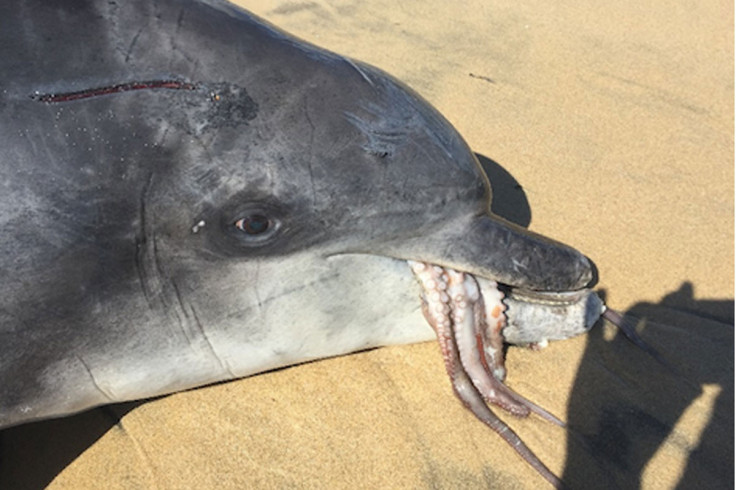A dolphin has suffocated to death on a giant octopus it tried to eat
Known locally as Gilligan, the Indo-Pacific bottlenose dolphin was found dead in Western Australia.
A dolphin has suffered a traumatic end to its life after attempting to eat a giant octopus in Western Australia.
Known locally as Gilligan, the Indo-Pacific bottlenose dolphin was found dead on Stratham Beach back in May 2015 but the full post-mortem results have only just been disclosed.
The dolphin was found on the beach with octopus tentacles hanging from from its mouth, with results showing the dolphin's airways had been obstructed- leading to the eventual death.
The tests found one octopus tentacle stretched down the dolphin's oesophagus, and the other seven stuck in the back of its throat. The tentacle suckers were gripping the throat walls and had blocked off the airway, causing the dolphin to suffocate.

According to the New Scientist, it isn't unusual for dolphins to try to take on an octopus but they normally break the body and tentacles into smaller pieces first using a "shake-and-toss" method.
Shaking the octopus helps to kill it and tear it apart, while tossing prevents it from latching on and also weakens the suckers.
Similar cases of dolphin deaths after attempting to eat an octopus have taken place before. In 2012 a bottlenose dolphin in Greece was observed with an octopus clasped to its genitals.
Despite the risky nature of eating the animal, an octopus can be highly nutritious for dolphins.
Large, muscular octopuses provide a robust meal full of high-quality proteins. They are also easier to catch than fish, because they tire quickly during pursuit, especially after they've finished breeding.
© Copyright IBTimes 2025. All rights reserved.





















